Latest Posts by vesperlf - Page 4
do you ever hear people talking about something and you’re like. fuck. let me be real for a second. i’m too much of a commie to have this conversation
okay, you know what? Running away shouldn’t be a crime. It shouldn’t be dangerous, either. Any kid should be able to leave their parents if they want, for any reason. No I’m not kidding.
“But Rue, where will these kids stay? Do you want them on the streets?”
of course not. In an ideal world, a kids would have multiple adults other than their parents they could look to for care, but I recognize that that will never be a reality for every single child. So: youth shelters, if they have nowhere else to go. There should be clean, warm shelters where anyone under 18 can stay for as long as they need, no questions asked. (And of course shelters that aren’t just for kids, but we’re talking about youth rights right now)
“But Rue,” I hear you say, “what if some moody teenager runs away after an argument?”
First of all, I’d rather a thousand moody teenagers run away than one abused child be trapped. Second, so what if one does? A kid needs time away from their parents, so they leave. The vast majority of them will get some time to cool down and then go back home, and if they don’t want to go back, period? Then nine times out of ten, they have a good reason. (Because yes, as hard as it is for you to believe, kids are humans who have common sense.)
“Okay, but what about the one time out of ten the kid doesn’t have a good reason?”
Then the kid doesn’t have a good reason. It doesn’t change anything. If someone wants to break up with their partner because of something stupid, you wouldn’t say they legally shouldn’t be able to. (And if you would, then you’re just a bad person.) No one should have to be in a relationship, romantic or otherwise, that they don’t want to be in.
Something that literally changed my life was working with a friend on a coding thing. He was helping me create an auto rig script and was trying to explain something to me but his words were just turning into static in my brain. I was tired and confused and there was so many new concepts happening.
I could feel myself working toward a crying meltdown and was getting preemptively ashamed of what was about to happen when he said, “Hey, are you someone who benefits from breaks?”
It broke me.
Did I benefit from breaks? I didn’t know. I’d never taken them.
When a problem frustrated or upset me I just gritted my teeth and plowed through the emotional distress because eventually if you batter and flail at something long enough you figure it out. So what if you get bruised on the way.
I viscerally remembered in that moment being forced to sit at the table late into the night with my dad screaming at me, trying to understand math. I remembered taking that with me into adulthood and having breakdowns every week trying to understand coding. I could have taken a break? Would it help? I didn’t know! I’d never taken one!
“Yes,” I told him. We paused our call. I ate lunch. I focused on other stuff for half an hour. I came back in a significantly better state of mind, and the thing he’d been trying to explain had been gently cooking in the back of my head and seemed easier to understand.
Now when I find myself gritting my teeth at problems I can hear his gentle voice asking if I benefit from breaks. Yes, dear god, yes why did I never get taught breaks? Why was the only way I knew to keep suffering until something worked?
I was relating to this same friend recently my roadtrip to the redwoods with my wife. “We stopped every hour or so to get out and stretch our legs and switch drivers. It was really nice. When I was a kid we’d just drive twelve hours straight and not stop for anything, just gas. We’d eat in the car and power through.”
He gave a wry smile, immediately connecting the mindset of my parents on a road trip to what they’d instilled in me about brute forcing through discomfort. “Do you benefit from breaks?” he echoed, drawing my attention to it, making me smile with the same sad acknowledgement.
Take breaks. You’re allowed. You don’t have to slam into problems over and over and over, let yourself rest. It will get easier. Take. Breaks.
hey did you know that uhh
i. the monster's body is a cultural body
ii. the monster always escapes
iii. the monster is the harbinger of category crisis
iv. the monster dwells at the gates of difference
v. the monster polices the borders of the possible
vi. fear of the monster is really a kind of desire
vii. the monster stands at the threshold… of becoming
she's right.
even with the subjective element, there are important notes that it will tend to feel wrong when the player doesn't have anything to hit, and unimportant notes that will tend to clutter a chart.
making a given song hit all ranges of charted note density is going to end up with most of them not fitting well with the song.
taking the time to figure out which difficulty is best, per song, is very tedious for the player. better for the developer to save time, only release one chart for each song, and avoid each player having to individually repeat the work.
rhythm game charts shouldnt have multiple difficulties, why do i need to feel out which level will have the chart adequately represent the music without adding shit in or leaving awkward empty space?
also. fellow people of the autism. vital life skill to learn is when people are being polite in order to have an excuse for their abusive behavior. it can be so easy to get bullied, esp. by people with systemic power over you, as an autistic person if they can weaponize politeness in ways that make you feel crazy for being hurt. every time an autistic person (or any ND person) refuses to be gaslit about being targeted/hurt/abused an angel gets its wings. just because you struggle with social cues does not mean you cannot trust yourself and how others make you feel.
i have no patience for people talking about violent rhetoric on the left really because every day i read the news and every politician in this country and in most others is saying 'we gotta kill more people'. they use different words to say it. obviously you're not supposed to just say 'we gotta kill more people'. but there's all kinds of polite and okay ways to say it.
'we need to control our borders' is a phrase which here means 'we gotta kill more people, we gotta drown more refugees in boats, we gotta send more people back to warzones and governments that want them dead, we gotta make more camps and we gotta make the camps more fatal'.
'we need to be tougher on welfare fraud' is a phrase which here means 'we gotta kill more people, we gotta make disabled people do more song and dance routines to convince some indifferent bureaucrat that they deserve to eat and we gotta make sure that the bureaucrats say 'no', we gotta starve those kids more, we gotta make sure families and kids and old people are freezing in the winter'.
'we need to tackle violent crime' is a phrase which here means 'we gotta kill more people, specifically Black people, unless we said Terrorism instead of Crime, in which case it's specifically muslims, shoot them, imprison them, surveil them, disappear them, brutalize them, whatever.'
and of course none of this is Violent Speech. this is Sensible Political Discourse. these are Common-Sense Policy Goals. we gotta kill more people: that's an electable policy. you can always count on we gotta kill more people as a platform. we gotta kill more people is gonna sweep the nation baby. we gotta kill more people 2024 -- vote now on your phones. now slow down. hold your horses. did that guy just say we gotta kill more people? well that just wont do. thats why im running on a platform of we gotta kill more people for cheaper, to stop this wasteful madness. and the people just keep dying but seems like there's still some of them left so i guess we're just circling back around to our main thing which is: we gotta kill more people
I still think that a key function of the way we think of the concepts "adult" and "child" is to separate the human population into "people who deserve autonomy but no protection" and "people who deserve protection but no autonomy" and in the process dehumanize both groups of people. We ignore the fact that all people need both autonomy and protection, and that our society could easily be set up to provide everyone a healthy mix of both.
The oldest reactionary rhetorical sleight of hand in the book is to identify something widely thought as distasteful, to go "this thing is Morally Wrong" and then not feel the need to explicitly say "that's why people need to be punished for doing it", just leave that as the obvious consequence and, in never Saying it, they never have to explain how guilt or innocence is established or any dialogue around what an appropriate, proportional response to said Taboo Behaviour might be.
Once you start recognizing it as the sleight of hand it is it's impossible to miss.






The Toa Voya.

And Dezalk.
(A live-updating list of stuff I use can be found here, feel free to suggest anything not on that list via my askbox.)
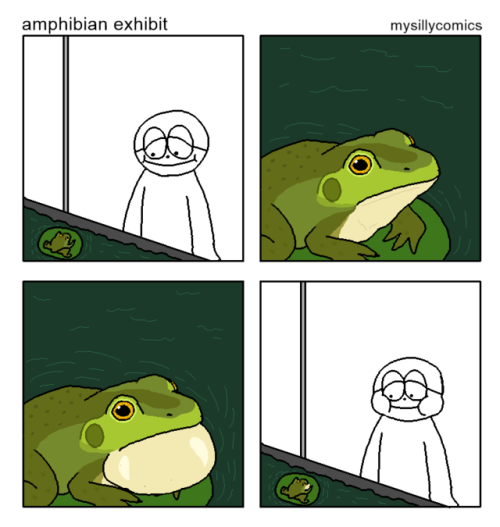
I LOVE YOU ORANGE ACCENTS




THANK YOU ORANGE ACCENTS

theyre in a polycule

lightning
to me that always came across as making a point about radical ideas not actually being unthinkably extreme like liberals sometimes pretend. kids can often figure out stuff like, hey, maybe it's messed up to have both homeless people and empty homes at the same time. even if it's simplistic, it shows the basic concepts as obvious things that people should agree with.
people say shit like "my radicalization was that when i was a child i wanted everyone to be treated nicely" and it's so annoying. that's not radical you can be a liberal and say that shit. what you're saying is "i have a child's understanding of politics." your childish idealism isn't going to establish a proletarian state that supresses the bourgeoisie and builds a socialist economy

A team of Rhode Island School of Design students and researchers have created tesselated, floating planting beds made of a mycelium biomaterial to cleanse waterways of pollutants and restore wetland habitat.

The floating Biopods act to introduce native plants back to degraded wetland systems while cleansing the water through bioremediation, or the re-introduction of microorganisms that naturally decontaminate their environment.


"Because of the urbanization of the Providence River itself, a lot of the wetland that acts to actively remediate pollution had been removed. So the project is really about reintroducing this new biology to kick start these ecosystems again so that the river might repair itself."

"It's interesting, the relationships that we have to biomaterials and the way that we are connected to systems that have the potential to remediate in a way that isn't electricity intensive or chemically intensive," said Banerjee.
I think either abstract or technical would both work, as long as it's actually descriptive.
It has to be short and it shouldn't say anything about the duration. If there are multiple stages, each should get unique text that would let the programmer know which exact for loop/api call/etc it's waiting on.
A good example is how, when you're compiling C++, MSVC lists each source file name so you can tell if one of them is taking a long time. If you're doing a batch build, it says which config it's on.
i hate the convention of computers just not saying what's going on. it'll be like Loading or Wait a bit or whatever and not Here's Why It's Taking So Long. even if i don't understand what it means let me at least be able to look it up online

I would put Gahlok instead but I don't have the canister handy
in the future, Braiding Sweetgrass will be assigned to all students to read in school, and mostly they will hate it, because it seems to them like poorly structured rambling about nature and vignettes from the author's life. Soooooooo boring!
We will struggle to explain to them: no, no, this book was actually completely revolutionary for its time. When Kimmerer talks about the honorable harvest, learning to listen to the teachings of the plants, understanding nature as animate and alive, and the relationship of reciprocity and mutual dependence between humans and other life forms, these are ideas that were genuinely new and mind-blowing to us when we were young.
It wasn't just those in power that saw nature as "Resources" or some kind of mechanical system that would be better off without human interference—almost no one else knew another way to think. Yes, yes, we knew about symbiosis, but we hardly ever applied it to ourselves. Kimmerer is serious when she says her cultural perspective was almost wiped out; the culture we inherited as children literally didn't have the concepts she is talking about, and that's why the book was so important!
We will tell the students that it would have been weird even among "environmentalists" of the time to think of trees and insects as your family. I mean, well, yes, we knew that everything was related, but we thought Charles Darwin was the first to come up with that. You don't understand, we will say, most of these ideas about living in right relationship with nature would have been thought of as extra-scientific, sentimental or spiritual crap.
"Did you just not know where food and clothes came from?" they will ask, with eyebrows raised. Yes, but back then, food was mostly grown in enormous fields of only one crop where everything else had been killed with chemicals. We didn't really think of agricultural environments as "ecosystems"—"nature" was a separate thing—I mean yeah, we harvested logs from forests, but that was different. No, we basically thought Earth was divided into "human uses" and "nature," and that people shouldn't be in the "nature" parts. No, really!
The students will be fascinated and ask things like "But what about parks?" "Would a hay field be nature or human uses?" "How about pollinator gardens?" "What about the ocean?" and we will try to explain to them that we really just didn't think that hard about it
unsung benefit i think a lot of ppl are sleeping on with using the public library is that i think its a great replacement for the dopamine hit some ppl get from online shopping. it kind of fills that niche of reserving something that you then get to anticipate the arrival of and enjoy when it arrives, but without like, the waste and the money.
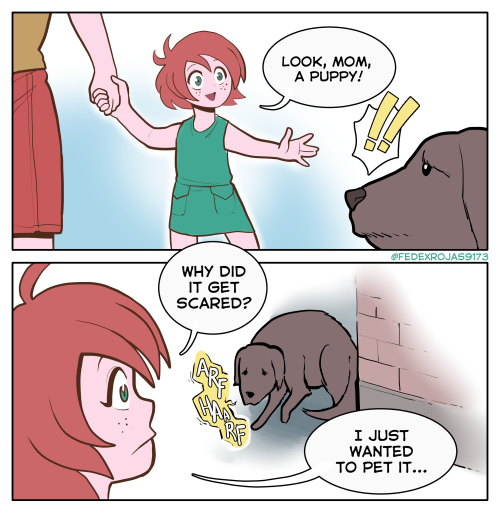
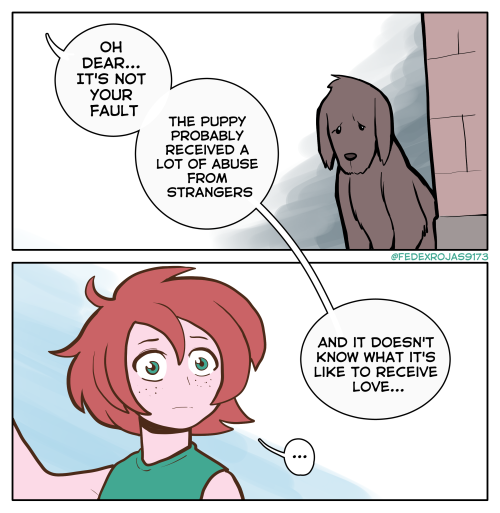
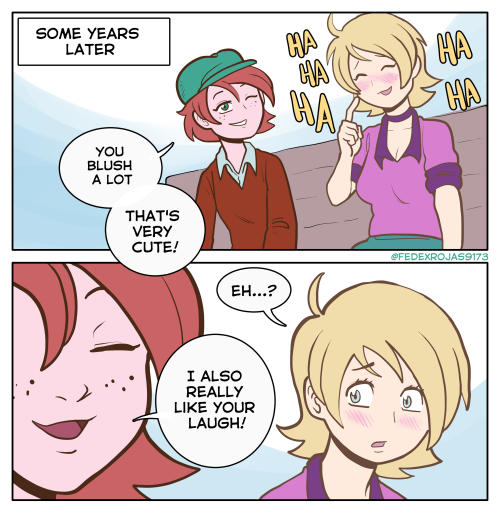

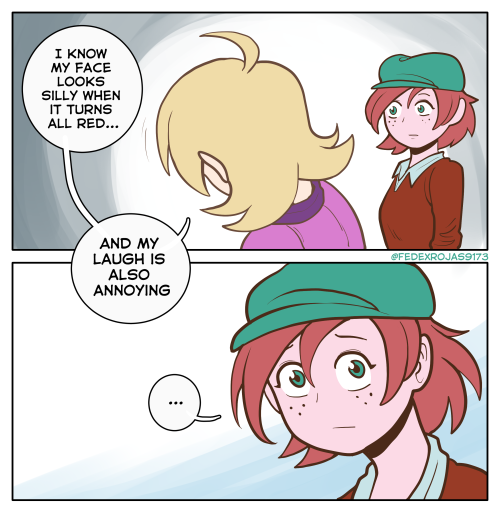
''Doesn't know what it's like to receive love''
The fact that boygirl adequately explains my gender but girlboy does not implies that gender is noncommutative. I’d be surprised if it was associative too.
I need more than infinite time. Like, give me a sideways timeline where I can spend forever on a specific project without time passing in the main world, but I don't need just one of those.
I need like five. I want to splinter into a bunch of different directions, all somehow at right angles to the timeline, only to slowly angle their ways back to this timeline and drop masterpieces of arbitrary amounts of work spent in these little atemporal cloisters


frankly outside the moral reasons to be pro-shoplifting I'd rather folks just take something instead of attempting to haggle me to pay less on technicalities
I don't have the patience to explain why you can't add an expired coupon to a discount promotion that hasn't started yet please just steal them it'll be easier for both of us
i love graffiti. "comics and jazz are the only american art forms" you forgot graffiti. did you remember graffiti? That art form birthed in Philly and NYC in the early 70s by poor Black kids. that art form that spread all over the world and influenced so many. that's used without irony in commercials when they're trying to appeal to a "young urban" customer.
did you forget graffiti? that racism broken windows theory victim? that reach the establishment takes claiming that it's exclusively violent gang members throwing up those full-color pieces and wildstyle tags in the middle of the night outsmarting fifty security cameras because the billboard was ugly anyway. as if, even if it was, it wouldn't be impressive as all hell. risking brutality and fall damage so your art can occupy the space a gentrified condo named something like "Coluumna" took away from you. proving that despite only assholes affording to live here anymore there's still a soul beneath it. an animal with dripping stripes and teeth that go clack-clack tsssss
The USAmerican imagination cannot consider land that is multi-purpose.
A corn field is Corn, an endless monoculture, and all other plants must be eliminated. A residential area is Houses, and absolutely MUST NOT!!! have vegetables or fruits or native plant gardens or small livestock. A drainage ditch is only a drainage ditch, and cannot harbor Sedges and native wetland plants, A sports field is for A Sport, and let no one think of doing any other event on that field, shops and storefronts must have their own special part of town that everybody has to drive to, which requires parking lots...and God forbid we put solar panels on roofs or above parking lots or anywhere they can serve an extra purpose of providing shade, instead of using a large tract of perfectly fine land as a "solar farm."
Numerous examples. But it is the most annoying with agriculture. The people who crunch all the numbers about sustainability, have calculated that a certain percentage of Earth's land is "Used up" by agriculture, which is troubling because that leaves less "room" for "Wilderness." It is a big challenge, they say, to feed Earth's humans without destroying more ecosystems.
Fools! Agriculture is an ecosystem—if you respect the ways of the plants, instead of creating monoculture fields by killing everything that moves and almost everything that doesn't. Most humans throughout history, and many humans today, sustain themselves using a mixture of foraging and agriculture, and the two are not entirely different things, because all human lifestyles change the ecosystem, and the inhabitants of the ecosystem always change themselves in response.
Even if you are a hunter-gatherer that steps very lightly in the forest and gathers a few berries and leaves here and there, you are being an animal and affecting all other parts of the ecosystem. By walking, breathing, eating, pooping, drinking, climbing, singing, talking, all of those things affect the ecosystem. If you gather leaves to sleep on, that affects the ecosystem...if you pile up waste, that affects the ecosystem...if you break a tree branch, that affects the ecosystem...if you start a fire, if you create a small shelter, if you cut a path, that DEFINITELY affects the ecosystem.
This idea, that human activity destroys the ecosystem and replaces it with something Else, something Not an ecosystem, is so silly. "But you just said that even the earliest most technologically simple human societies altered their environment!"
Yes, I did. Because we believe that "pre-agricultural" humans could have no effect on their "wilderness" environment, we ALSO believe another false idea: That when humans affect an environment, they destroy "Wilderness" and change it to something else, like Agricultural Land, that can never have biodiversity and never benefit many life forms.
I think it is the European idea of agriculture that it always involves people settling down and relying on a few special plants that are domesticated intentionally and grown in specially dedicated fields. After all, this idea of an agricultural lifestyle, is in contrast with the "hunter-gatherer" lifestyle, which is assumed to be what humans do before they "figure out" agriculture. The European mind imagines "pre-agricultural" folks ignorantly bumbling about, thinking plants and animals conveniently pop out of nothing for their benefit.
Bullshit! I shake my head in disappointment when I see websites describing Native Americans using wild plants as if those plants just-so-happened to grow, when those same wild plants just-so-happen to thrive only in environments disturbed by humans in some way, and just-so-happen to have declined steeply since colonization, and just-so-happen to be nonexistent in unspoiled "Wilderness" locations, and (often) just-so-happen to have an incredibly wide range where they either once were or are incredibly common, making it very...fortunate that they just-so-happen to have a wide range of uses including food, medicines, and materials for clothing and technology.
Accidentally of course, without any human impact from the humans that were impacting everything. /s
"But if it wasn't an accident, how did it happen?" Here is how to understand this idea: Look at the weeds! The weeds will teach you.
Look at the plants you always see growing without being planted around human buildings and roads, and learn their history. Often you will learn that these plants have many marvelous properties, and have actually been used by humans for thousands of years.
In fact, some of the most powerful and difficult to control weeds, were once actually some of the most essential and important plants for human civilizations to depend on. The dreaded Kudzu, in its home in East Asia, was one of the main plants used for clothing for over 6,000 years, and not only that, it has been cultivated for food and medicine for millennia. You can make everything from paper to noodles out of Kudzu! And Amaranth, the most expensive agricultural weed in all the USA, produces edible and healthy grains as well as several harvests of greens per growing season, and several species of the genus have been fully domesticated and formed a staple crop of Mesoamerica.
Meanwhile...some people have come up with this neat "new" idea called Polyculture, which is where you plant a field with two crops at once and somehow get better yields from both of them. WITCHCRAFT! Unrelatedly, there are other ideas like "Cover Crops" and "Agroforestry" that for some reason have the same beneficial effect.
Wow...It turns out, sterilizing the whole environment of every plant except one crop...isn't actually a good way to do agriculture in many places in the world.
Just think about it from an energy point of view...
We have some places used for "Agriculture," where we wring the land as violently as possible to squeeze green vegetation from light energy.
And we have other places for Other uses, where we spend massive amounts of fossil fuels mowing, chopping, poisoning and trimming to STOP the land from producing its incredible bounty of green vegetation.
And in the agricultural fields, we spend even MORE resources killing the unwanted plants that grow spontaneously
This system is hemorrhaging inefficiency at both ends. It simply isn't a one-to-one conversion of land and fossil fuels to food energy. The energy expenditure of agriculture is mostly going into organizing the vegetation's energy into the shape and configuration we want, not the food itself.
In the Americas, indigenous agricultural systems involve using the plants that exist in the environment to construct an ecosystem that both functions as an ecosystem and provides humans with food, clothing, and other important things. This is the most advanced way.
Most of our successful weeds are edible and useful. A weed is simply a plant that is symbiotic with humans. My hypothesis of plant domestication is that it was initiated by the plants, which became adapted to human environments, and humans bred them to be better crops in response. Symbiosis.
Humans did not pick out a few plants special to intensively domesticate out of an array of equally wild plants, instead they just ate, selected, and bred the plants that were best adapted to live near human civilization. That is my guess about how it happened.
Just think about it. Why would you try to domesticate teosinte (Maize ancestor?) It sucks. Domesticated plants in their wild form are usually like "Why would you put hundreds of years of effort into cultivating this?" Personally I think it's because the plant grew around humans and humans ate and used it a lot because it was abundant. So we co-evolved with the plant.
Supporting this hypothesis, there are many crop plants that mutated and evolved back into weeds, like "weedy" rice, "weedy" teosinte, and "weedy" radishes. Also weeds develop similar adaptations to crop plants to survive in the agricultural environment.
Consider Kudzu. Everyone in the USA knows it as an invasive weed, but since ancient times in China, it was a crop that provided people with fabric from its bast fibers, food from its enormous starchy roots, and many medicinal and other uses. Kudzu is not evil, it simply has a symbiotic relationship with humans, and just as any other species might serve as a biological control, the main biological control of kudzu in nature is the human species.
Think of the vast fields and mountain sides of the South swallowed by thick mats of Kudzu covering lumps that used to be trees. Think of the people toiling away to clear the Kudzu, while wearing clothes made of cotton that was grown in a faraway place using insecticides and depleting fresh water, using energy from their bodies that came from crops grown in fields far away.
Now imagine people working to harvest the Kudzu, to cut the new vines and dig up the starchy roots and use the plant the way it is used by the people who know its ways. Imagine the people using the starch from the Kudzu root to make flour and noodles and sweet confections. Imagine workers processing the vines into thread which is woven into fabric. The hillsides and fields flourish with plants that used to be suffocated, and hillsides and fields in faraway places also flourish with their own plants, instead of being made to grow cotton and crops to provide for the needs the Kudzu provides for.
Imagine the future where we accept our symbiotic relationship with the plants!
Every now and then I remember that Malbolge exists and I get to spend the better part of an hour cry-laughing at the world’s worst programming language

already starting off strong, but it gets worse

Wow! Sounds easy and intuitive to use! What’s the “crazy operation” you ask? We’ll get to that later. For now let’s see what a program in this language looks like :)

Thanks! I hate it!

it’s so difficult to work with that the first program was written by another brute force search program

mmmmm delicious base-3 arithmetic, what could go wrong? (For reference, that means this program forgoes the usual “0/1″ values of binary code in favor of a much more fun “0/1/2″ set of values)

ah.

Here’s how the language actually figures out what to do. It’s got 8 “simple” commands that can be executed easily by *checks notes* running the code itself through the modulo operation and taking the result.

As a bonus, on top of all that every single character in your code will now alter what every single other character does. So I hope you’re alright with cracking a cipher every time you add a new letter to your program!

oh god oh fuck.

behold, Malbolge’s primary arithmetic operation and what you’ll be using for most of your math while programming with it :)
This looks specifically designed to be the least logical math operation you could make, and knowing what the rest of Malbolge is I’d wager that’s precisely what happened. I never want to ever use this and it’s my favorite thing I’ve ever seen.
https://en.wikipedia.org/wiki/Malbolge
Anyways here’s the wiki page if you wanna read through it more deeply, I’m gonna sit here holding in my laughter staring at the hello world program again.

AND EVEN WHEN YOUR HOPE IS GONE

